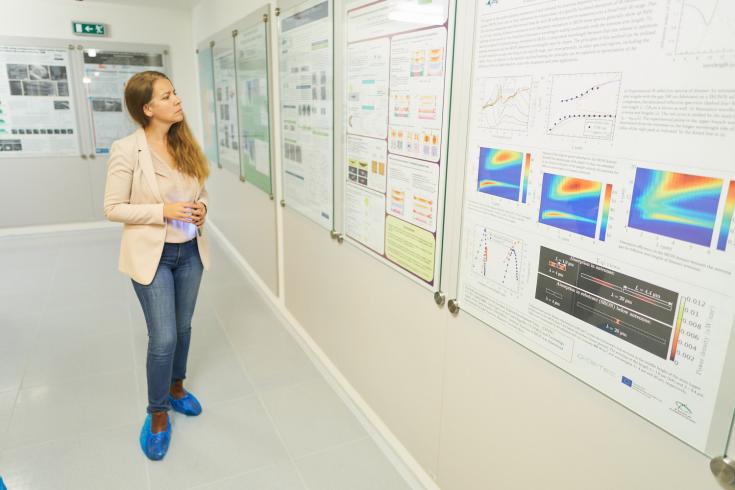Cultural and Creative Industries: Towards a green and digital Europe

On 31 January 2023, the Policy Learning Platform hosted the first episode of Cultural and Creative Industries series.
During the webinar, we explored and discussed approaches on how to foster the transformation of the cultural and creative industries in the context of the twin – digital and green – transformation of the economy, including:
- Ecosystem-based approaches – CCIs and smart specialisation
- Digital transformation of the CCIs
- Interaction of the CCIs with other economic sectors
Take a look at the webinar recording below and access the presentations and key learnings.
Webinar recording
Webinar agenda
Concept and moderation by Luc Schmerber and Mart Veliste, Thematic Experts of SME competitiveness.
00:04:36 Introduction by Luc Schmerber and Mart Veliste
00:09:26 Keynote presentation by Christina Koch from EIT Culture & Creativity on transforming Europe’s Cultural and Creative Sectors and Industries
00:26:29 Q&A: Are the regional offices active and can they be contacted today?
00:29:16 Q&A: How are developed are the flagship initiatives?
00:33:27 Presentation by Josean Urdangarin from the Regional Government of the Basque Country, on the lessons learned in the CREADIS3 project
00:43:42 Q&A: In which respect did you change your approach to the creative districts, after the project?
00:46:42 Q&A: Do you have examples of well-managed tourism/creative industries clusters or ecosystems? Are there any good EU cluster policies on creative industries?
00:49:20 Presentation by Paolo Montemurro from the Matera Hub, Basilicata Heritage Smart Lab on the lessons learned in the ECoC SME project
01:00:21 Q&A: Are the protoypes and what has been made in the smartlab visible in your region?
01:01:46 Q&A: What has been the main challenge and the unexpected impact during the process?
01:04:59 Presentation by Ákos Szépvölgyi from the Central Transdanubian Regional Innovation Agency on the lessons learned in CRE:HUB project
01:13:47 Q&A: You mentioned vulnerability as one of the new challenges, can you elobrate on this? Is it specific to the cultural and creative industry?
01:15:21 Q&A: Which of the outputs of your project are still news in your regions?
Panel discussion
01:17:03 Q&A: Do you see the potential for cross fertilisation in other sectors, beyond tourism and digital operators?
Key learnings
- Digital technologies have a strong potential for leveraging the impact of CCIs
Digital technologies can strongly enrich the content of cultural services and offers. They provide the opportunity to reduce the dependence of CCIs from e.g. site-based activities. This is especially relevant for cultural activities.
- CCIs have the potential to foster innovation across all industrial sectors
CCIs have fertile natural connections to the tourism sector and many initiatives are focussing on the uptake of digital technologies in the CCIs, bringing together cultural and digital operators.
However, the advantages of promoting CCIs as innovation drivers for almost any other sectors have been clearly demonstrated. Today, the CCIs are more and more connected with green industries, gastronomy, health, etc.
- Multilevel governance models are recommended to leverage the impact of CCIs
Strong CCI-based ecosystems require multilevel governance models bringing together public and private actors. CCIs need global and political leadership. It is therefore important to involve different levels of governance when designing strategies for the CCIs – local and regional – to define relevant policies.
This takes time and requires a long-term perspective, as well as continuous monitoring and evaluation of the governance model and the impact of the policies.
- Local micro-systems are key for making an impact
Due to their specificities, the potential of the CCIs for generating economic and non-economic impact, e.g. social cohesion, cultural and social welfare, is best tapped into on the local level. Community engagement and territorial identity are key success factors.
